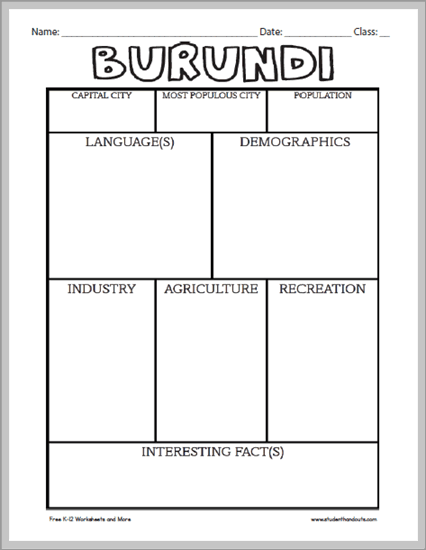Click here to print. Answers will vary.
Burundi, a small, landlocked country in East Africa, has an economy primarily based on agriculture, with industry and recreation playing smaller but growing roles. Agriculture employs the majority of the population and contributes significantly to the country's GDP (gross domestic product). Major crops include coffee, tea, maize, bananas, and sweet potatoes. Coffee and tea are Burundi's top export products, vital for earning foreign currency. Most farming is done on small plots using traditional methods, and subsistence farming is common, with many families growing food mainly for their own use.
Burundi's industry is limited but includes food processing, construction materials, textiles, and small-scale manufacturing. The country has some mineral resources, such as nickel and gold, but development in the mining sector remains minimal due to limited infrastructure and investment.
Recreational activities in Burundi are influenced by its rich cultural traditions and natural beauty. The shores of Lake Tanganyika provide opportunities for swimming, boating, and fishing, while national parks like Kibira and Rusizi offer wildlife viewing and eco-tourism potential. Traditional drumming, dance, and storytelling remain important forms of cultural recreation. Despite economic challenges, the Burundian people maintain a strong sense of community and cultural identity, which is reflected in both everyday life and leisure activities.
|




















































